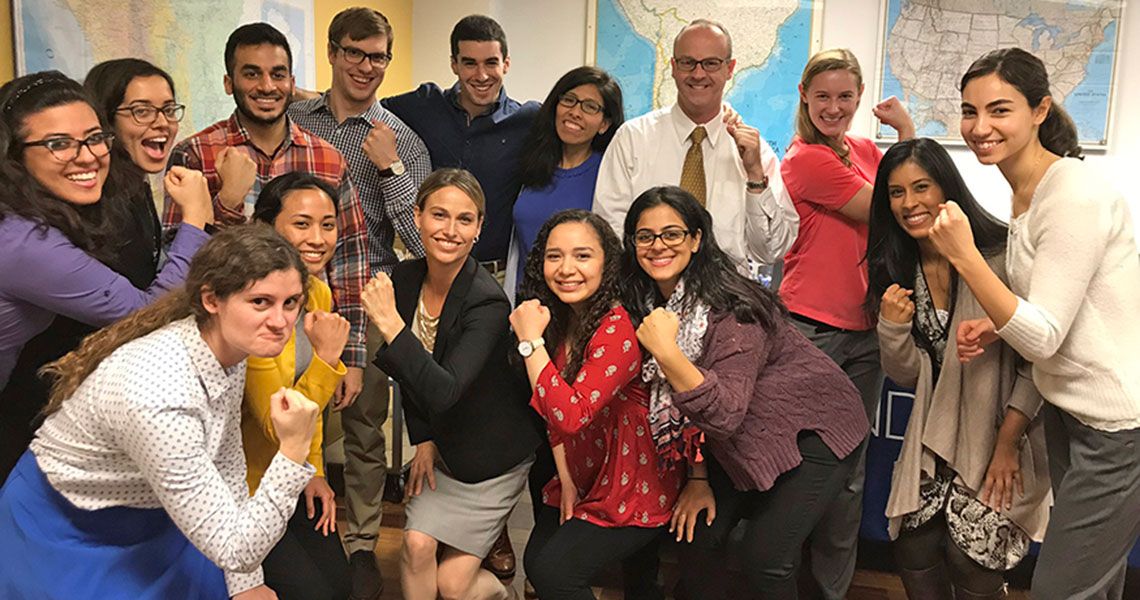According the Center for Disease Control, more than 100 million adults in the United States are living with diabetes or prediabetes. In an effort to educate the local population, the Endocrine Society partnered with the Division of Endocrinology and Metabolism at the George Washington University (GW) School of Medicine and Health Sciences (SMHS), to organize a health fair in November for Diabetes Awareness Month.
The fair brought together endocrinology faculty, medical students, and physical therapy (PT) faculty and students from GW SMHS, as well as public health from the Milken Institute School of Public Health at GW, who volunteered their time to educate the local population on living a healthy lifestyle and preventing diabetes.
The health fair was organized in support of EndoCares, the Endocrine Society’s first global outreach program for patients and providers, which was launched in Lima, Peru in 2016. It was held at Peruvian Consulate in D.C., and was focused on reaching and educating the city’s Latino population, specifically Peruvians. “Latinos are 1.7 times more likely to develop diabetes than Caucasians,” said Nicole Ehrhardt, MD, assistant professor of medicine at SMHS. “So, it is important to get the word out about diabetes prevention to this vulnerable population.”
The event provided the opportunity for students to give back to the greater D.C. community, to practice interacting with patients, especially in other languages, and to work with professionals in other medical specialties, according to third-year SMHS DPT student Leia Swanson. “I loved the interdisciplinary aspect of the event.”
Medical and public health students offered health fair attendees crucial dietary tips such as reading labels, portion sizing, and total calorie and fat goals. A research coordinator from the Division of Endocrinology was on-site to perform free A1c screenings — a test that checks for diabetes and prediabetes. The test was donated by Siemens Medical Solutions in support of the fair.
“The A1c test is just a pin prick for blood, which is run through a machine for five minutes,” explained Ehrhardt. “The results tell us [a person’s] three-month average blood sugars and helps assess risk for developing diabetes or if [the patient] has diabetes.”
The test is recommended for people age 45 and older or those who are younger than 45 who are overweight or obese and display one or more of the risk factors associated with diabetes.
PT students provided cardiovascular screenings to determine each individual’s readiness for exercise, based on a self-report questionnaire. They also discussed current exercise guidelines provided by the American Heart Association with patients.
“Exercise is a key non-pharmacological factor in managing diabetes,” Swanson said. “It improves blood glucose control, especially in those with Type 2 diabetes.”
Exercise lowers cardiovascular risk factors and helps with weight loss, improving overall health and wellness in those at risk for or living with diabetes.
“[Diabetes] is a preventable disease,” Ehrhardt said. “We try to empower our patients with knowledge of a healthy lifestyle and choices.”



